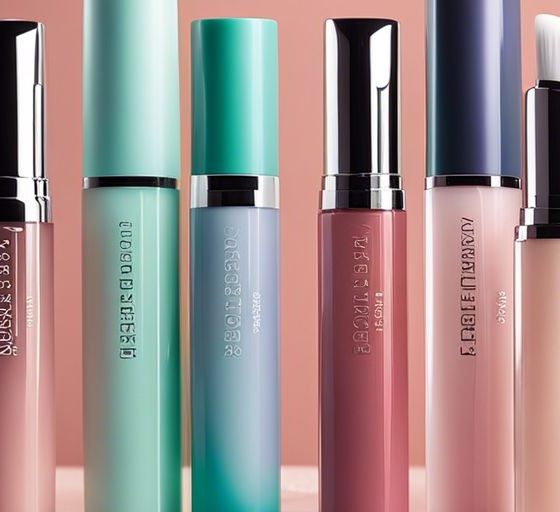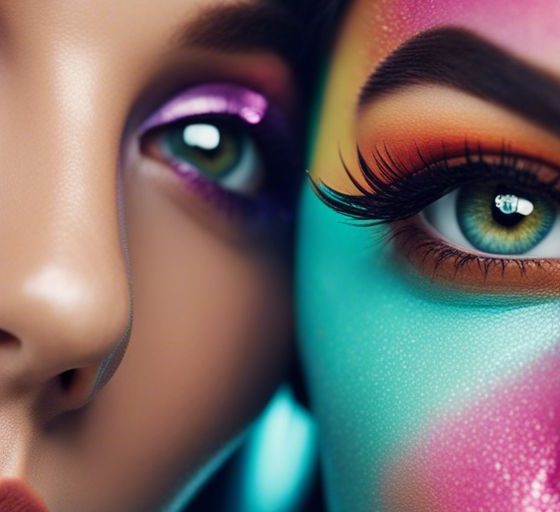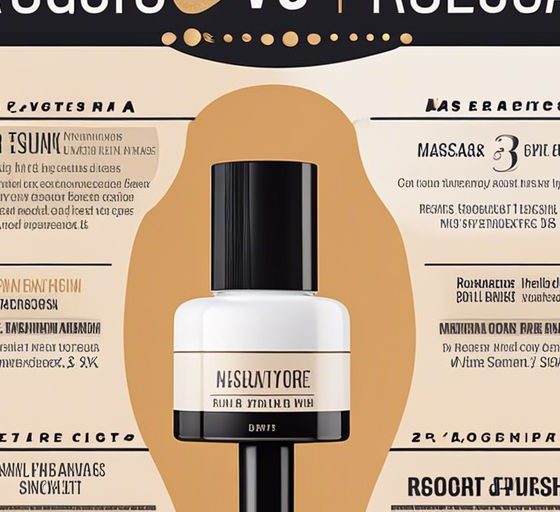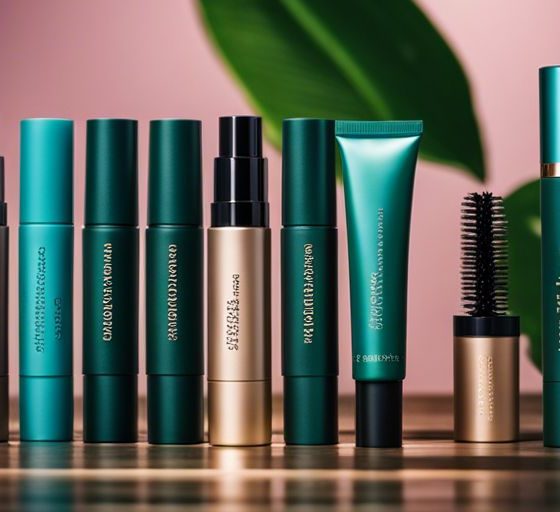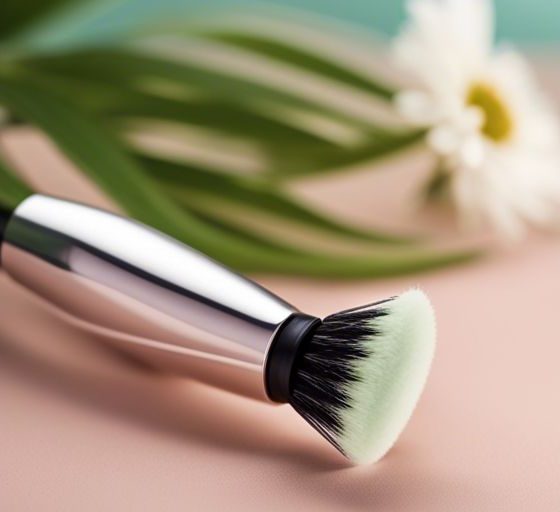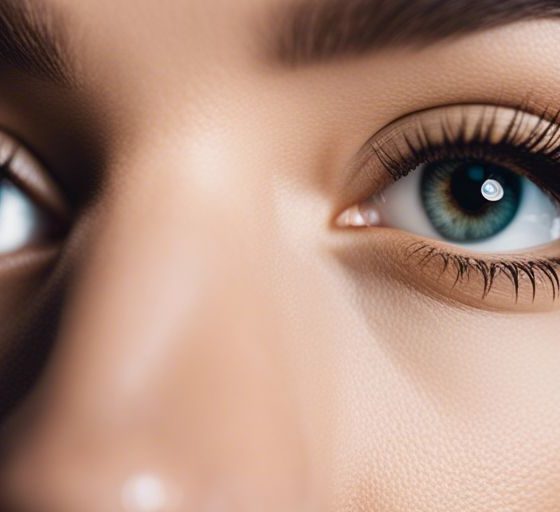Skincare is crucial to maintaining youthful and healthy-looking skin. However, there are common mistakes that many people make in their anti-aging skincare regimen that can actually do more harm than good. To ensure that you are getting the most out of your skincare routine and helping to combat the signs of aging, it is important to be aware of these pitfalls and avoid them at all costs.

Understanding Aging and Skin Health
The Skin Aging Process
Aging is a natural process that affects all parts of our body, including our skin. Over time, our skin undergoes various changes that lead to visible signs of aging, such as fine lines, wrinkles, and sagging. These changes are primarily due to a decrease in collagen and elastin production, which are necessary proteins for maintaining skin firmness and elasticity.
Factors That Accelerate Skin Aging
Aging of the skin can be accelerated by various external and internal factors. UV radiation from the sun is one of the primary culprits, causing damage to the skin cells and leading to premature aging. Other factors like smoking, poor diet, stress, pollution, and lack of sleep can also contribute to aging skin.
- UV radiation: It damages skin cells and accelerates aging.
- Smoking: It reduces blood flow to the skin and leads to wrinkles.
- Poor diet: Lack of necessary nutrients can affect skin health.
- Stress: It can trigger inflammation and accelerate aging processes.
- Pollution: Environmental pollutants can damage skin cells.
- Lack of sleep: It hinders skin repair and regeneration.
Plus, it is important to note that genetics also play a role in how our skin ages. Some individuals may naturally have younger-looking skin due to their genetic makeup, while others may be predisposed to premature aging based on their genes. It’s crucial to understand these factors and take appropriate steps to protect and maintain the health of our skin as we age.

Selecting the Right Anti-Aging Products
The Role of Ingredients in Anti-Aging
It is crucial to understand the role of ingredients in your anti-aging skincare products. Ingredients such as retinol, hyaluronic acid, vitamin C, and peptides are some of the key players in fighting the signs of aging. Retinol, a form of vitamin A, helps to stimulate cell turnover and collagen production, reducing the appearance of wrinkles and fine lines. Hyaluronic acid is a powerful hydrator that plumps the skin and improves elasticity. Vitamin C is a potent antioxidant that brightens the skin and protects it from environmental damage, while peptides help to firm and tighten the skin.
Reading and Interpreting Product Labels
With the overwhelming array of anti-aging products available in the market, it can be challenging to decipher product labels. When reading product labels, look for key ingredients like retinol, hyaluronic acid, niacinamide, and antioxidants. These ingredients are known for their anti-aging benefits and have scientific research backing their efficacy. Pay attention to the concentration of active ingredients and avoid products with irritants like alcohol, artificial fragrances, and sulfates.
Understanding product labels is vital to ensure you are investing in effective and safe anti-aging skincare products. Look for labels that specify the concentration of active ingredients and any potential allergens. Additionally, checking for certifications like ‘cruelty-free’ and ‘paraben-free’ can help you make more informed decisions about the products you choose to include in your skincare regimen.
Common Mistakes in Anti-Aging Skincare
Many people strive to maintain a youthful appearance and often turn to anti-aging skincare products to achieve this goal. However, there are some common mistakes that people make in their skincare routines that can hinder their efforts. One of the most prevalent mistakes is skipping sun protection.
Skipping Sun Protection
Commonly overlooked, sun protection is crucial in any anti-aging skincare regimen. The sun’s harmful UV rays can accelerate skin aging, causing wrinkles, dark spots, and sagging skin. By neglecting to wear sunscreen daily, you are exposing your skin to damage that can undo any progress made by anti-aging products.
Another common mistake in anti-aging skincare is over-exfoliation and its consequences.
Over-exfoliation and its Consequences
Many individuals believe that the more they exfoliate, the better their skin will look. However, over-exfoliation can strip the skin of its natural oils, leading to dryness, irritation, and even increased sensitivity. It is imperative to be cautious with exfoliation and follow a balanced approach to avoid damaging the skin.
Overexfoliation can also disrupt the skin’s barrier function, making it more susceptible to environmental aggressors and speeding up the aging process.
Neglecting the Neck and Décolletage
Many focus their skincare efforts solely on the face, forgetting about the neck and décolletage areas. However, these areas are prone to showing signs of aging, such as wrinkles and sagging skin. Any comprehensive anti-aging skincare routine should include these often neglected areas to ensure a consistent and youthful appearance.
Inconsistent Skincare Routine
The inconsistent skincare routine is another significant mistake many people make in their anti-aging efforts. Skipping skincare steps or using products sporadically can hinder the effectiveness of the products and lead to subpar results. It is crucial to establish a consistent routine and stick to it to see optimal benefits.
For instance, incorporating products with ingredients like retinol or vitamin C can yield excellent results but only with regular use. Consistency is key in anti-aging skincare to achieve the desired outcomes and maintain youthful-looking skin.

Lifestyle Factors Affecting Skin Aging
Despite following a meticulous skincare routine, lifestyle factors play a significant role in how our skin ages. These factors can either accelerate or slow down the aging process, impacting the appearance and health of our skin. It’s necessary to be aware of these lifestyle influences and make conscious choices to maintain youthful and radiant skin over time.
Impact of Diet on Skin Health
On top of your skincare regimen, a balanced diet rich in antioxidants, vitamins, and minerals can greatly benefit your skin health. Foods like fruits, vegetables, nuts, and oily fish can provide necessary nutrients that nourish and protect your skin from damage caused by free radicals and inflammation. Conversely, a diet high in processed foods, sugars, and unhealthy fats can lead to oxidative stress and premature aging of the skin.
Thou should also ensure you stay hydrated by drinking an adequate amount of water daily, as dehydration can lead to dry, dull skin that is more prone to wrinkles and fine lines.
Importance of Sleep and Stress Management
Skin health is closely linked to our sleep patterns and stress levels. Lack of quality sleep can disrupt the skin’s repair and regeneration process, leading to a tired and lackluster complexion. Chronic stress can trigger inflammation in the body, accelerating the aging process and contributing to various skin issues like acne and eczema.
The right amount of sleep and effective stress management techniques, such as meditation or yoga, can improve skin health by allowing the body to rest and recover properly.
The key to healthy and youthful skin lies not only in skincare products but also in maintaining a balanced lifestyle that considers the importance of sleep, stress management, and dietary choices.
The Effects of Smoking and Alcohol Consumption
Affecting skin aging significantly, smoking and excessive alcohol consumption can have detrimental effects on the skin. Smoking restricts blood flow to the skin, depriving it of oxygen and necessary nutrients, leading to premature aging, wrinkles, and a dull complexion. Alcohol, on the other hand, dehydrates the skin, causing it to appear dry and aged.
Stress levels can also contribute to how these lifestyle factors affect the skin, as increased stress can amplify the negative impacts of smoking and alcohol on skin aging.
Advanced Anti-Aging Techniques and Treatments
After mastering the basics of anti-aging skincare, you may be ready to explore more advanced techniques and treatments to further combat the signs of aging. These options can range from professional skincare treatments to at-home devices and tools, as well as cosmetic procedures.
Professional Skincare Treatments
Any effective anti-aging skincare regimen should include periodic visits to a skincare professional for advanced treatments. These professionals can offer a range of services tailored to your specific needs, such as chemical peels, microdermabrasion, and laser treatments. Below is a breakdown of the pros and cons of professional skincare treatments:
| Pros | Cons |
| Customized treatments for your skin concerns | Potential for side effects like redness or irritation |
| Professional expertise and guidance | Cost can be prohibitive for frequent treatments |
| Visible results in a shorter timeframe | May require downtime for recovery |
At-Home Devices and Tools
Any advanced anti-aging regimen can benefit from the use of at-home devices and tools that can complement your daily skincare routine. These devices range from LED masks to microcurrent devices and can help enhance the effectiveness of your products. While at-home devices offer convenience and targeted treatments, it is imperative to understand their limitations.
| Pros | Cons |
| Convenience of use at home | May not be as effective as professional treatments |
| Cost-effective in the long run | Results may vary based on individual skin concerns |
| Can boost the efficacy of skincare products | Requires consistent and proper use for optimal results |
Skincare devices and tools should be seen as a supplement to professional treatments and a regular skincare routine, rather than a replacement for more intensive procedures.
The Pros and Cons of Cosmetic Procedures
The decision to undergo cosmetic procedures for anti-aging purposes is a significant one that requires careful consideration. Understanding the pros and cons of these procedures can help you make an informed choice that aligns with your skincare goals and preferences. Here is a breakdown of the key factors to consider:
| Pros | Cons |
| Immediate and dramatic results | Risk of complications or adverse effects |
| Long-lasting effects compared to topical treatments | Cost can be high, especially for multiple procedures |
| Can target specific areas of concern | Potential for dissatisfaction or need for revisions |
The Pros and Cons of Cosmetic Procedures
Understanding the full scope of benefits and risks associated with cosmetic procedures is crucial to making an informed decision. While these treatments can offer transformative results, they also come with potential drawbacks that should not be overlooked. It is imperative to consult with a qualified healthcare provider before undergoing any cosmetic procedure to ensure it is the right choice for you.
Integration and Balance in Your Skincare Routine
Once again, it is crucial to emphasize the importance of integration and balance in your anti-aging skincare regimen. Achieving optimal results requires a harmonious combination of products and practices that work together cohesively.
Synchronizing Your Anti-Aging Routine with Other Skincare Practices
Routine: When incorporating anti-aging products into your skincare routine, it is important to synchronize them with other skincare practices. This includes ensuring that the active ingredients in your anti-aging products complement rather than counteract the effects of products you use for other skin concerns, such as acne or sensitivity.
Balancing Professional Advice and Personal Research
Balance: Balancing professional advice with personal research is key to crafting an effective anti-aging skincare regimen. While seeking guidance from skincare professionals is valuable, it is also important to conduct your research to ensure that the products and techniques you choose align with your skin’s unique needs.
For instance, while a dermatologist may recommend a specific anti-aging ingredient for your skin type, conducting research on the concentration levels and potential side effects of that ingredient can help you make an informed decision on whether it is the right choice for you.
Summing up
Conclusively, avoiding common mistakes in your anti-aging skincare regimen is crucial for achieving healthy and youthful skin. By steering clear of over-exfoliating, neglecting sunscreen, using too many products, and forgetting about the importance of hydration, you can maintain a balanced routine that supports your skin’s longevity and vitality. Remember that consistency is key when it comes to skincare, so be mindful of these mistakes and make adjustments to your regimen as needed to optimize your results.
FAQ
Q: What are common mistakes to avoid in your anti-aging skincare regimen?
A: Regarding anti-aging skincare, there are several mistakes to avoid such as using products with harsh ingredients, neglecting sunscreen, skipping moisturizer, over-exfoliating, and not being consistent with your routine.
Q: Why is using products with harsh ingredients a mistake in anti-aging skincare?
A: Harsh ingredients can strip the skin of its natural oils, leading to dryness, irritation, and premature aging. Look for gentle, nourishing ingredients like hyaluronic acid, vitamin C, and retinol for effective anti-aging benefits.
Q: How important is sunscreen in an anti-aging skincare regimen?
A: Sunscreen is crucial in any anti-aging skincare regimen as it helps protect the skin from harmful UV rays that can cause wrinkles, dark spots, and other signs of aging. Make sure to use a broad-spectrum SPF of at least 30 every day, even on cloudy days.
Q: Can skipping moisturizer affect the effectiveness of an anti-aging skincare regimen?
A: Yes, skipping moisturizer can affect the effectiveness of your anti-aging skincare regimen. Moisturizer helps hydrate and plump the skin, reducing the appearance of fine lines and wrinkles. Choose a moisturizer that suits your skin type for optimal results.
Q: How does over-exfoliating impact the skin in an anti-aging skincare routine?
A: Over-exfoliating can irritate and damage the skin’s barrier, leading to redness, sensitivity, and accelerated aging. Limit exfoliation to 2-3 times a week and choose gentle exfoliants like lactic acid or fruit enzymes to avoid overdoing it.




